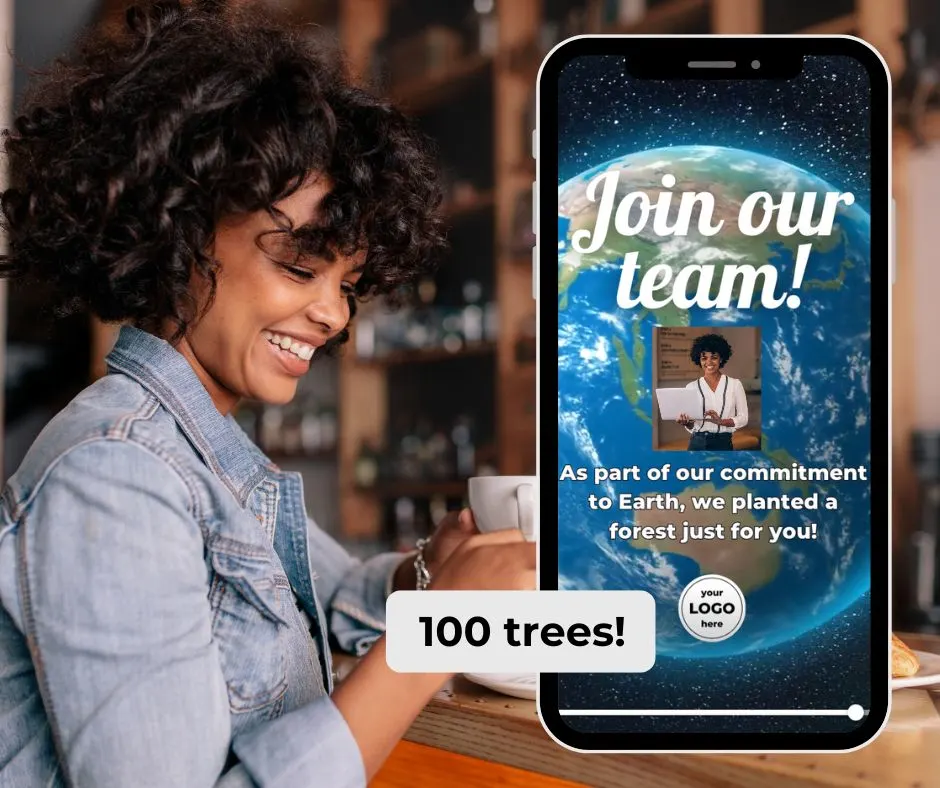Earth Day is an annual celebration that unites people worldwide in the fight against global warming and environmental destruction. As we look ahead to Earth Day 2025, let’s explore when this global event takes place, dive into this year’s powerful theme, and discover meaningful ways to get involved and make a difference for our planet.
?See how 100+ companies and 10,000+ people grow with us on Earth Day. Check out our official guide >
When is Earth Day 2025?
Earth Day 2025 falls on Tuesday, April 22. This date has remained consistent since the very first event in 1970, thanks to the visionary efforts of then US Senator Gaylord Nelson. He chose it as a convenient date between spring break and final exams to maximize student participation in environmental teach-ins.
When Was The First Earth Day?
Let’s take a trip down memory lane to the birth of the modern environmental movement. The first event was held on April 22, 1970, spearheaded by Senator Gaylord Nelson and activist Denis Hayes. They rallied an impressive 20 million people across the United States to demand action against air pollution, oil spills, and the loss of biodiversity. This groundbreaking event led to the creation of the Environmental Protection Agency and landmark legislation like the Clean Air Act and Endangered Species Act.
Is Earth Day The Same Day Every Year?
Yes! It is always celebrated on April 22, no matter what day of the week it falls on. This unwavering commitment ensures that people around the world can plan their activities well in advance. It’s a day that transcends borders and unites us all in our shared responsibility to protect the planet.
Why Was April 22 Chosen For Earth Day?
Senator Nelson and his team strategically selected this date to engage the youth and tap into the energy of the anti-Vietnam War protests. By placing the event between spring break and final exams, they maximized student participation and ensured that the environmental movement would be infused with the passion and idealism of the younger generation.
When Is Earth Week and Earth Month?
If one day dedicated to our planet isn’t enough for you, don’t worry – we’ve got you covered! Earth Month spans the entire month of April, providing a whole 30 days to immerse yourself in eco-friendly activities and raise awareness about pressing environmental issues.
And if you’re looking for a more concentrated celebration, look no further than Earth Week! In 2025, Earth Week runs from April 16-22, culminating in the main event. It’s the perfect time to organize a series of engaging events, workshops, and challenges that build momentum and inspire your community to take action.
What is The Theme For Earth Day 2025?
Drumroll, please… The theme for Earth Day 2025 is “Our Power, Our Planet”! This powerful campaign emphasizes the collective responsibility we all share in transitioning to renewable energy sources and creating a sustainable future.
The goal is ambitious but achievable: triple renewable energy generation globally by 2030. By harnessing the power of the sun, wind, and other clean energy sources, we can reduce our reliance on fossil fuels, combat climate change, and build a greener, more resilient world for generations to come.
What Was The 2024 Theme?
Looking back at 2024, the theme was “Planet vs. Plastics” – a rallying cry to confront the plastic pollution crisis head-on. The campaign aimed to reduce plastic production by a whopping 60% by 2040 and eliminate single-use plastics entirely.
From beach cleanups to plastic-free challenges, people around the globe united to raise awareness about the devastating impact of plastic waste on our oceans, wildlife, and human health. It was a powerful reminder that our individual choices, like saying no to disposable straws and bags, can add up to make a massive difference.
Simple Ways To Celebrate Earth Day
Here are some simple yet impactful ways to celebrate:
- Plant a tree or start a pollinator garden: Get your hands dirty and give back to nature by planting trees or creating a haven for bees, butterflies, and other vital pollinators.
- Reduce your plastic consumption and properly recycle: Take a hard look at your plastic footprint and find ways to cut back, like switching to reusable bags and water bottles. And when you do use plastic, make sure to recycle it correctly!
- Participate in a local cleanup or environmental event: Join forces with your community to clean up a beach, park, or neighborhood. It’s a great way to make a tangible difference and connect with like-minded eco-warriors.
- Advocate for renewable energy policies in your community: Use your voice to push for clean energy initiatives in your city or town. Attend town hall meetings, write to your representatives, and spread the word about the benefits of renewables.
Engaging Ideas For Earth Day Activities
Check out these inspiring activity ideas:
- Organize a renewable energy fair or workshop: Educate your community about the power of clean energy by hosting a fair featuring solar panels, wind turbines, and electric vehicles. Invite experts to lead workshops on energy efficiency and green living.
- Host a sustainable fashion swap or upcycling event: Fight fast fashion by organizing a clothing swap or upcycling workshop. Encourage participants to bring gently used items to trade or repurpose into new, stylish pieces.
- Plan a green transportation challenge: Dare your friends and family to ditch their cars for a day (or a week!) and opt for eco-friendly transportation like biking, walking, or carpooling. Make it a fun competition with prizes for the most miles logged or creative commutes.
- Create eco-friendly art installations or murals: Harness the power of art to raise environmental awareness. Collaborate with local artists to create stunning, thought-provoking pieces that spark conversations about climate change, pollution, and conservation.
Let’s Make Every Day Earth Day
Here are some ways to weave sustainability into your daily life:
- Incorporate sustainable practices into your daily routine, like composting, using eco-friendly cleaning products, and reducing your meat consumption.
- Support businesses and policies that prioritize renewable energy and green practices. Vote with your wallet and your ballot!
- Educate others about the importance of environmental stewardship. Share your knowledge, experiences, and passion with friends, family, and your wider community.
Remember, together we have the power to create a cleaner, greener planet. Every small action counts, and by making every day Earth Day, we can build a sustainable future that we’re proud to pass on to future generations.
?Give back to Mother Earth with creative ideas from our playbook. Learn more here >
FAQs
Earth Day began on 1970, in the United States. It was founded by Senator Gaylord Nelson in response to growing concerns about environmental degradation. Activism from millions of people around the world led to significant environmental actions, including the creation of the Environmental Protection Agency and the passage of key environmental laws.
Since its beginnings in 1970, Earth Day has grown into a global movement. In 1990, Earth Day expanded internationally, mobilizing 200 million people in 141 countries. Today, Earth Day is celebrated by more than a billion people worldwide and is recognized as the largest secular observance in the world, driving action on climate change and other pressing environmental issues.
World leaders often use Earth Day as an opportunity to announce new environmental initiatives, sign important agreements, or reaffirm their commitment to addressing the climate crisis. For example, the Paris Agreement was signed by 120 countries on Earth Day 2016. Earth Day also serves as a platform for global summits and conferences focusing on environmental issues.
Earth Day campaigns often highlight critical environmental issues such as oil spills and the importance of clean water. These topics are frequently incorporated into educational programs, awareness campaigns, and action initiatives associated with Earth Day. The day serves as a catalyst for ongoing efforts to prevent environmental disasters and protect our natural resources.
Earth Day has had a significant impact on environmental policy over the years. It played a crucial role in the creation of the Environmental Protection Agency in the United States and the passage of landmark environmental laws. The first Earth Day in 1970 led to the Clean Air Act, Clean Water Act, and Endangered Species Act. Internationally, Earth Day continues to influence policy decisions and drive environmental action at local, national, and global levels.
Each year, Earth Day adopts a global theme to focus attention on a pressing environmental issue. For example, the theme for Earth Day 2024 is “Planet vs. Plastics,” calling for a 60% reduction in plastic production by 2040. In contrast, Earth Day 2022’s theme was “Invest in Our Planet,” emphasizing the importance of sustainable business practices and green technology.













